Jun 3, 2025 11:25 AM
In Memoriam: Al Foster, 1943–2025
Al Foster, a drummer regarded for his fluency across the bebop, post-bop and funk/fusion lineages of jazz, died May 28…
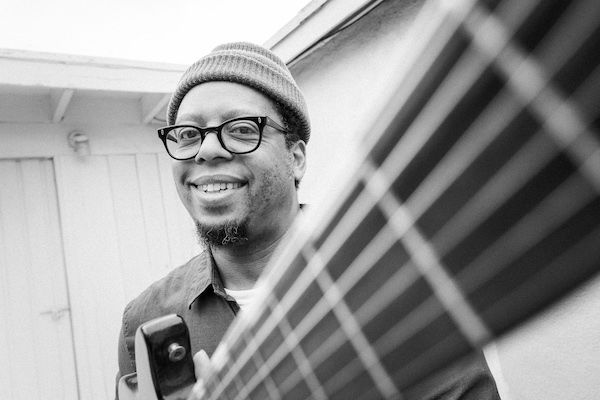
Guitarist Jeff Parker used the recording process to write material for his latest album, Suite For Max Brown (International Anthem).
(Photo: Jim Newberry)Jeff Parker is drinking black coffee on the back patio of a café within walking distance of his house in Altadena, California. The wooded enclave northeast of downtown Los Angeles has been home to many notable jazz artists: Albert “Tootie” Heath, Bennie Maupin, Roy McCurdy and John Clayton, to name a few.
Parker ultimately settled here after moving to L.A. from Chicago about six years ago. The eclectic scene here was a good landing spot for a jazz guitarist with successful simultaneous careers in both rock and jazz. Parker was (and still is) in the experimental rock band Tortoise when they released their landmark album TNT in 1998, the same year he appeared on the debut album for the Brian Blade Fellowship. He has continued on that dual path, working and recording with prominent jazz musicians like Dave Douglas and Makaya McCraven, and making appearances with indie-rock artists like Andrew Bird and Meshell Ndegeocello.
Long the consummate sideman, Parker only recently has arrived as a stand-alone artist. His new album—Suite For Max Brown, which was inspired by his mother, Maxine Brown—is a follow-up companion to 2016’s The New Breed, the acclaimed recording that introduced Parker’s unique blending of samples and beats with live improvisation.
The following has been edited for length and clarity.
How do you like living in L.A.?
I love it, man. Mostly I like my house. We got a nice place; there’s a studio there. It’s more like a lifestyle thing. 20 years ago, I wouldn’t have liked it ... now, it’s a good place for me.
Has living here changed anything about your approach or perspective to music?
Yeah, sure. L.A., it’s more commercially oriented. [But] there’s more creative musicians here, approaching it in different ways than in Chicago. I feel like when I was in Chicago, the music I was making, just because of the community I was in, had a more experimental aesthetic. I wanted to get away from that, to figure out how to write things in a different way.
What does your mom think of the new album?
She’s only heard the singles. She hasn’t heard the whole thing. She likes both of those. She’s very thrilled to have her picture all over the internet.
Can you describe the process of how you got the music together?
Basically, I honed into this way of using the recording process to write. I’ve kind of been making music like that for a while, at least [for] probably 10 or 15 years. Because if I sit down with pen and paper, it just feels different to me. It’s more inspiring this way. I end up writing stuff with a sequencer. The difficult part is trying to mix it with improvising, so it doesn’t sound like you’re playing over tracks, and make it sound like the musicians can interact.
Did you have them come in together to record, or did they come in individually?
Both. One, cats are busy. Two, there’s no money [laughs]. I actually feel kind of guilty about having these musicians come in and perform, and then I’ll move things around, and make it into something that I approve, you know? It’s really hard for me to make music where I’m writing everything and choosing everything that everyone’s playing, and giving people specific directions. But I kind of confronted it head-on to prove to myself that I could do it, because I had never done it before. I used to not even really believe in having a “solo career.” I make music with my friends.
What changed your mentality?
I just felt like it was something that I needed to do. Just a feeling. I’ve always admired artists like Prince, Shuggie Otis, Madlib. Hip-hop producers who hunker down in their studios and basically stitch music together from stuff. Drum machines, recordings, weird old instruments.
Do you have tunes on the new album you’re especially fond of?
I like “Max Brown.” I had the demo ... me on bass, guitar, various percussion, sequenced drum pattern. ... The feel was really good. I mean, it had this Dilla thing. When we recorded it, I just had them play the song in tempo, but not with the demo. We played it for a long time, probably for a half-hour, and [altoist Josh Johnson] and [trumpeter Nate Walcott] were just trading [solos] like they are on the recording. Makaya [McCraven] was on drums, and Paul [Bryan] was on bass. But the feel wasn’t right, and that was kind of my mistake, where I didn’t have them play with the demo. I retracked the drums. Because Makaya doesn’t live here ... I had Jamire [Williams] come over one day and play along with the demo, so the feel was right. Then Paul redid his bass line over the top of that, and I kept the soloing from Josh and Nate.
You basically remixed your own tune.
Yeah [laughs]. And it came out really good. I used to DJ a lot in Chicago. One night I was spinning this Nobukazu Takemura record, perfectly blended with A Love Supreme, so it sounded like A Love Supreme with this thing underneath it, with Elvin’s drums. It sounded awesome, and I was like, “Oh, man, I wish I could make some shit like that.” So, I was trying to do that with Max Brown.
You’re quoted as saying that you don’t consider yourself a jazz musician. Was that a throwaway comment?
No, no! It’s more a way of tricking my brain into bringing other new things into my music. I don’t really want to be bound by what has been defined as “jazz.” I mean, it’s a pretty nebulous term, anyway.
Yet, there are elements of the music that you bring to all the different settings you’ve played in.
I think it’s more a social thing for me. I think Abbey Lincoln, other musicians, I think even Miles [Davis], called it “social music.” It’s a way of socially functioning in a group of musicians that’s informed by this kind of learned aesthetic. I mean, I definitely consider myself a guitarist closer to Grant Green and Kenny Burrell than Jimi Hendrix. So, even when I play with Andrew Bird, I look at it [as being] closer to somebody with that “jazz” aesthetic. And it’s a social thing. It’s not a music thing. Or is it? I don’t know. DB
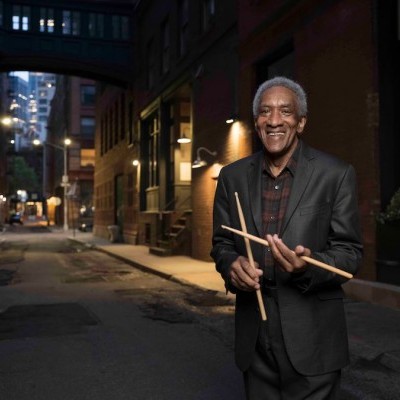
Foster was truly a drummer to the stars, including Miles Davis, Sonny Rollins and Joe Henderson.
Jun 3, 2025 11:25 AM
Al Foster, a drummer regarded for his fluency across the bebop, post-bop and funk/fusion lineages of jazz, died May 28…
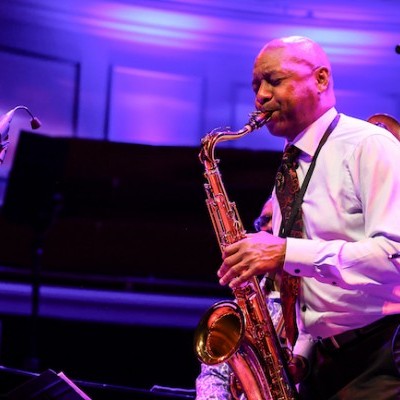
“Branford’s playing has steadily improved,” says younger brother Wynton Marsalis. “He’s just gotten more and more serious.”
May 20, 2025 11:58 AM
Branford Marsalis was on the road again. Coffee cup in hand, the saxophonist — sporting a gray hoodie and a look of…
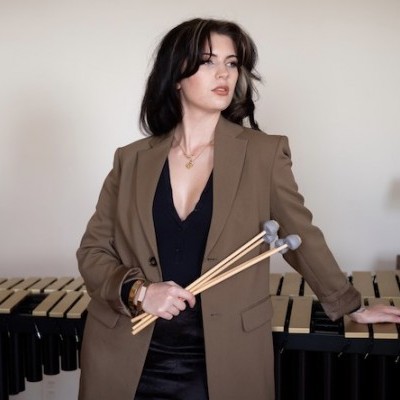
“What did I want more of when I was this age?” Sasha Berliner asks when she’s in her teaching mode.
May 13, 2025 12:39 PM
Part of the jazz vibraphone conversation since her late teens, Sasha Berliner has long come across as a fully formed…

Roscoe Mitchell will receive a Lifetime Achievement award at this year’s Vision Festival.
May 27, 2025 6:21 PM
Arts for Art has announced the full lineup for the 2025 Vision Festival, which will run June 2–7 at Roulette…
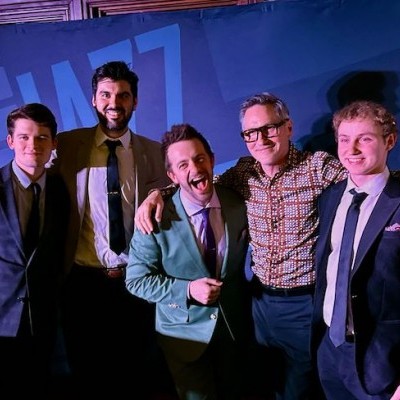
Benny Benack III and his quartet took the Midwest Jazz Collective’s route for a test run this spring.
Jun 3, 2025 10:31 AM
The time and labor required to tour is, for many musicians, daunting at best and prohibitive at worst. It’s hardly…